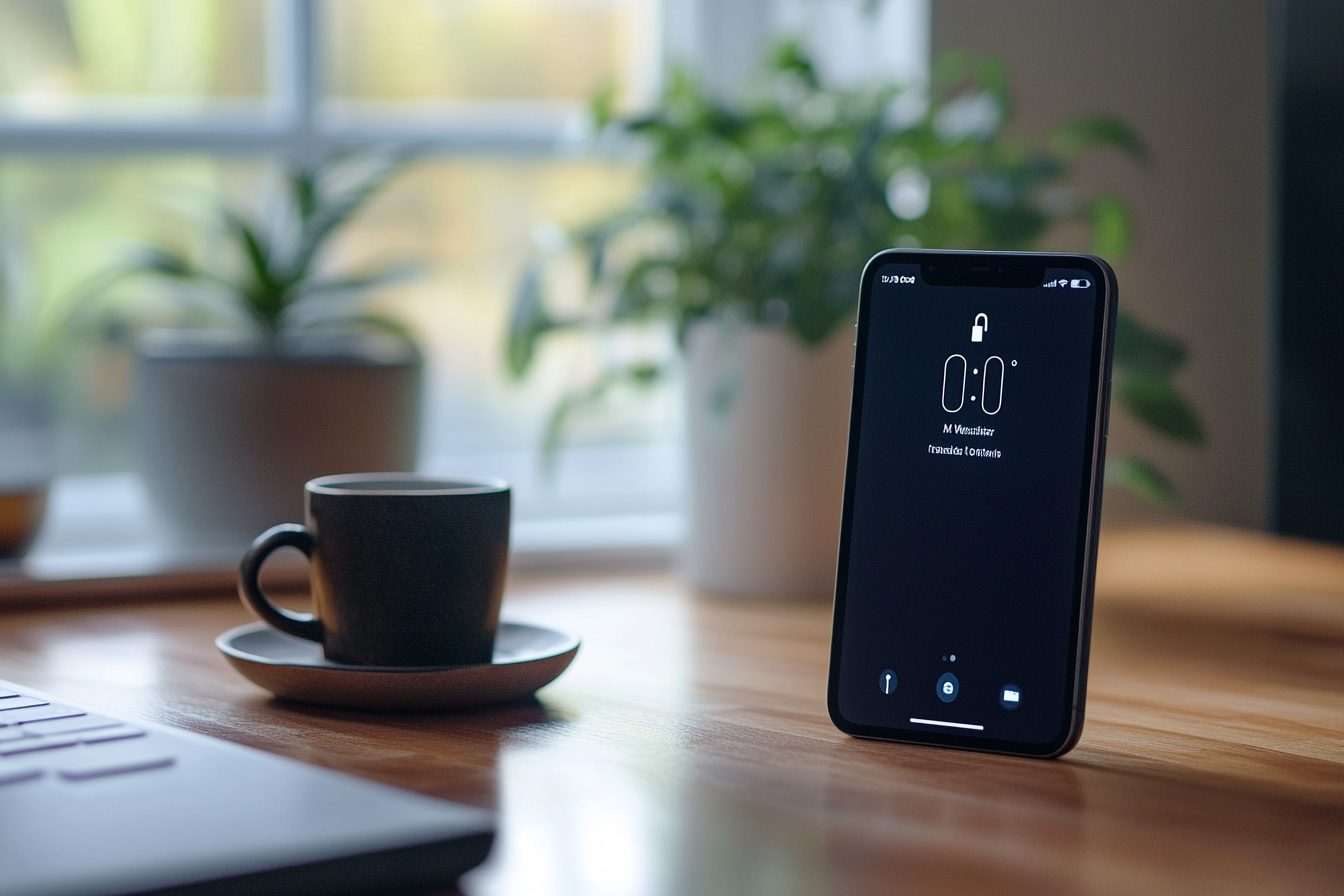Each and every Sunday my family follows the same schedule. Coffee is brewing, the birds are singing, and my New York Times crossword is loaded on my iPad. Simultaneously, my screen time report has arrived and gives me a notification. It was delivered “on time”, like a sadistic stalker.
And what do my eyes behold at this ungodly hour? An astounding 5.4 hours, marking a staggering 22% increase from the previous week. “5.4 hours?…” How delightfully contradictory. My devices have undergone spontaneous metamorphosis into my worst nightmare.
Instead of condescending dialogue about maximizing productivity and avoiding the “dreaded” self-loathing, I get welcomed by my phone saying “would you like to indulge in self-loathing for breakfast?” Excuse me? Does my phone have so much disdain to mock me like this before I even start my day?
Suspending judgment always gives some at least half a good coronary reason. For years I’ve spent constructing systems focused on user notification and engagement and simultaneously being the worst type of hypocrite. Turns out that the mix of social comparison, guilt and trickery = amount self-deprecation needed to fuel me. Guess that is the way forward – but not without some more triggers to remove.
I am still somewhat ideally sueded into my seat like a retired locksmith does, yet instead of relishing in the sweet embrace of serenity, nightmares haunt me in the form of my own doors. It seems to me that the most troubling aspect is not so much the amount of hours in question, but rather the intricate logic the system I’ve erected around them. Just like the three times I have probed into the depths of instagram, “That was a work week,” I reason with myself, “emailing makes everything completely alright.” “I was doing my research,” I justify forgetting that it was rather my attempt in researching mid-century modern furniture that led to me watching people pop pimples with extreme prejudice. “I was traveling by flight,” I announce to nobody in particular which justifies an adult spending five hours straight playing Solitaire because in my world, being up in the air cancels the laws of temporality. With time, these justifications become increasingly elaborate. Just last month attempting to justify to my wife the logic of my absurd seven-hour daily average resulted in me telling her, “Oh, that’s misleading.”
“I slept listening to podcasts.” When she suggested all I needed was a sleep timer, I mumbled something about “wanting to finish the episode,” which makes no sense of me being, you know, asleep. There is also a report to complete. This report alone makes my head start swinging trying to come up with all possible explanations just to evade the outcomes that are required.
“If we take away the three hours of my life spent googling where that Thai restaurant moved to, and divide the balance of the equation by the six days I was actually aware, then I really only…” At this point, the calculations would stump a mathematician at CERN, but I am deliberately trying to avoid the fact that I’ve spent too long staring at my phone. Now, there is a greater category of shame I impose on myself related to my phone. Social media makes me feel altruistic because it triggers thoughts of anything positive, which is the exact opposite of the lie I’ve been telling myself when, at one in the morning, I find myself lost in a virtual world where people are arguing over whether a background character in a sitcom from the 90s was feminist enough to use a mayo jar.
Though the word “sometime” hints at a possible constructive feature, it clearly isn’t one. It looks like reading and reference is academic until one realizes it includes the twenty minutes I spend furiously exploring if a few celebrities underwent plastic surgeries. That is not splendid.
Affiliation with the previous week’s comparison is the most cynical feature. “Up forty-two percent from last week” is so much stronger than merely looking at the numbers – with the context, it narrates, illustrates a story, recounts a history, evokes a decline and recovery arc as well.
My context – a week ago, I was bedridden for three days and did not have my phone within reach. The context doesn’t align. These days, context has loose boundaries. it feels as if someone twisted the circumstances of my low sick usage days.
The algorithm explains how I didn’t meet my goals without offering an explanation. With no context the algorithm is like a terrible school principal who only issues unconstructive punishment devoid of rationale—overly strict and absent fairness. Then there was that moment, even worse, when my eleven-year-old daughter came to me one day and said, “Wow, Dad, you use your phone more than I do, and I’m a kid.” The truth in that remark is astonishing, and her use of “literally” was perfectly appropriate, which is what made things less stressful.
The follow up hit hard: “Are you not meant to be trying to help people use their phones less?” Professional criticism, especially from non-experts, can be incredibly savage. My wife says I could just turn off the notifications, but not being in control gives me the creeps. As a writer on digital wellness, wouldn’t that be an ironic paradox regardless?
You know what, my weekly routine is actually quite effective. Admittedly, it is self-deriving, but after checking the report, I can count on feeling horrible. Then I tell myself I’ll do better in the future, only to not actually change anything and do it all over again. Thank you for your concern; this strategy is fantastic, rather terrible, to be honest.
The truly painful issue is not the traditional feeling of shame every time you resort to self-loathing, but in fact is more in the long term. These documents do address issues which pertain to the why’s, how’s, and what value we place on time versus productivity. For instance, what do you imagine happens if you try to scroll your phone for the time you consider worth spending?
The measuring calculus for the duration spent on the device elevates beyond mere hours. It transforms into a clear indication of taken options encaps in waiting to be realized, illustrating what behavioral economists refer to as opportunity cost. Back in the days when I engineered notification systems, we set out with the intention to design what we termed as “engagement loops.” Psychological phenomena that made sure users would always come back to the application time and time again. We studied everything from the most effective periods for interval between notifications to the perfect wording to initiation curiosity, along with the best moments to bring to your attention the existence of the app.
The Screen Time report is an interesting inversion of this system and serves as a disengagement rather than an engagement notification. It’s the same as everything else in life. With strong reasoning underpinning the design, making it helpful and at the same time manipulative. The numbers resonate distinctively painful but in an orderly fashion.
Separated from their accounts, these graphical depictions feel like a shattering judgment from a nudist mirror. “Social; 2h 14m average… per day” is not context; it explains nothing, not even how sixty seconds of fortifying a friend’s emotional meltdown spent thirty minutes dedicating would have his mother’s surprise birthday party organized. Context shifts to cold, calamitous fact reports.
There are numerous tactics to exploit the system, and I have tried all of them. For instance, charging my phone between app usage sessions would leave my podcast app open. In my mind, I was categorizing my device as ‘Entertainment’ rather than ‘Social Networking.’ Furthermore, many time-sapping applications have desktop equivalents.
I sometimes would go as far as using my wife’s phone to do some browsing just so that the screen time would not be linked to my account. It’s almost like eating cookies while standing over a sink so the calories don’t count. As usual, none of these works take into consideration the fact that the real issue is that I actually might be spending more time than necessary on my phone. This is where the report happens to be correct.
That is precisely what is so maddening about it. The weekly screen time report is a contrived paradox and is, in and of itself, a counterproductive form of engagement. Something that I now check with a blend of dread and jubilation.
Ironically, my phone has transformed into something I use for entertainment rather than a tool I need to regulate. My phone has shifted from aiding me assess my technology use to being another piece of technology to futilely engage with.
Every Sunday, I absolutely do not forget to check my screens, cementing my behaviors on a digital level. It’s like a horror movie. Let’s face it: I know and can explain what is going on here.
Screen time summary captures information that is painfully clear to me. Sure, I do remember that my Wednesday evenings are spent losing myself to Youtube rather than reading the book which is now overdue and gathering dust on my nightstand. I am also quite aware of the times when I devote family time to mindlessly scrolling on Twitter.
The report quantifies behavior so much that ignoring it becomes impossible. Maybe it’s effectiveness doesn’t truly lie in providing a functioning system of accountability, but rather in the fact that it highlights the reality most of us want to turn a blind eye to. It is a wake up call, however fleeting, before we go back to our routines.
I always set a personal goal every week and this time it is to lessen the trauma inflicted by my report on Sunday. Occasionally, I manage to lower those numbers, Which does provide some sort of value even if I don’t succeed because change begins with accepting reality, whether it’s pleasant or not.
Please, let me check if anyone has interacted with the post I made while writing this article on decreasing screen time. The irony in fact embellishes that shame, much like a fine wine enjoyed alongside particularly strong cheese.







